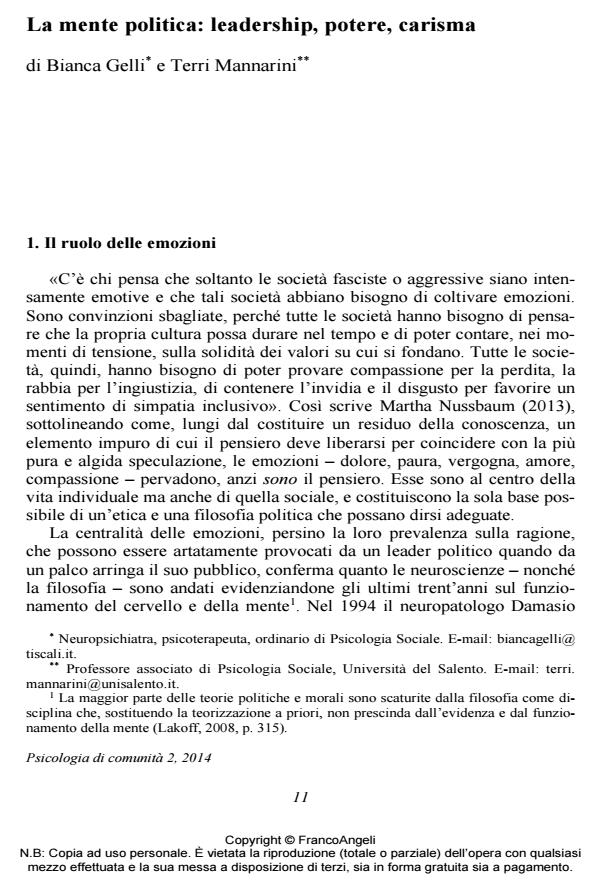The political mind: leadership, power, charisma
Journal title PSICOLOGIA DI COMUNITA’
Author/s Bianca Gelli, Terri Mannarini
Publishing Year 2015 Issue 2014/2
Language Italian Pages 12 P. 11-22 File size 64 KB
DOI 10.3280/PSC2014-002002
DOI is like a bar code for intellectual property: to have more infomation
click here
Below, you can see the article first page
If you want to buy this article in PDF format, you can do it, following the instructions to buy download credits

FrancoAngeli is member of Publishers International Linking Association, Inc (PILA), a not-for-profit association which run the CrossRef service enabling links to and from online scholarly content.
The advances of neuroscience in the last thirty years suggest that in order to understand the human mind we need to take a view that integrates the "cogito" with the body, thus emphasising how sensitive the cerebral mechanisms are to emotions and feelings. It has emerged from recent biological studies that a large proportion of our thinking takes place outside of our consciousness or that our thinking is largely reflex, uncontrolled. This hypothesis brings to mind the characteristics of a New Enlightenment, founded not on the abandonment of reason, but on the understanding of the true/real/actual reason: a reason that incorporates emotion, structured by frame, metaphor, images and symbols. This also applies to ideas and behaviours in the moral and political sphere. It is to this unconscious part that political leaders appeal, to stir up emotive reactions in their electorate. This seems to alter the concept of leadership based on power and authority. In fact, as argued and shown in this paper, adopting one single style of command is no longer enough: the leadership of the future is fluid, assuming different characteristics at different times.
Keywords: Cognitive intelligence; emotional intelligence; leadership; power; charisma
Bianca Gelli, Terri Mannarini, La mente politica: leadership, potere, carisma in "PSICOLOGIA DI COMUNITA’" 2/2014, pp 11-22, DOI: 10.3280/PSC2014-002002